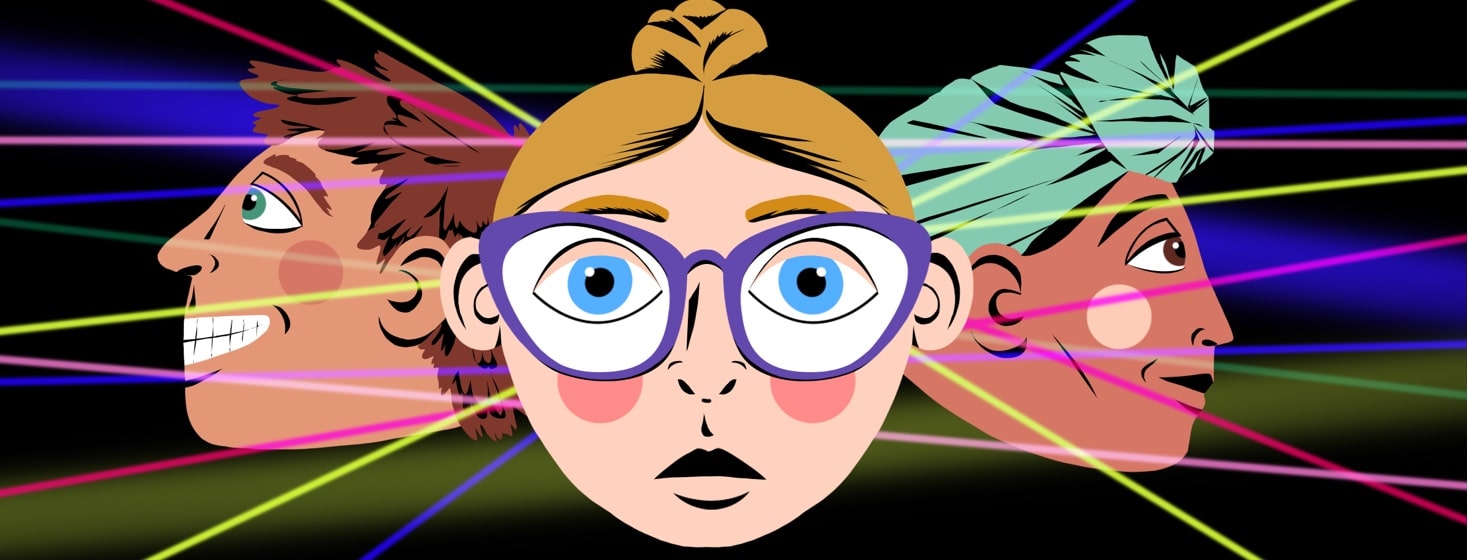Why High Myops Can’t Get Lasik Surgery for Better Vision
One of the questions I get most when discussing my vision struggles with others is, "Why don’t you just get Lasik surgery?" I usually respond with, “I wish I could!” My prescription is currently sitting at a -15 and -16, so it’s safe to say that without corrective lenses I’m blind as a bat.
What is myopia?
I have mypoic macular degeneration, which means the culprit to my macular degeneration and vision loss is high myopia.
High myopia means I am extremely nearsighted. I can see objects that are near to me clearly, while objects that are further away are blurry. Here’s some interesting information for you! Myopics like me have eyes that are shaped like footballs instead of spheres, like most people. Basically, I have big, GIANT eyes. They’re beautiful and I’m complimented on them constantly... but their size and shape just mean they don’t work really well. Extreme vision loss is a steep price to pay for beauty, and I wish I had normal eyes.
Complications of having football-shaped eyes
Eyes being ‘misshapen’ causes light rays to refract, or bend, incorrectly which causes the focus on images to be in the wrong place. This also means that the retina of high myopes doesn’t grow bigger because the eyes did... it means that it’s just being stretched really thin to be able to ‘fit’ the eye. The way my first retina specialist explained it to me is that the retina is like wallpaper that is being stretched and pulled around the eye, allowing more room for rips and tears... and no room for any surgeries or scarring.
What is Lasik surgery?
Lasik surgery is a laser surgery that temporarily corrects refractive errors in vision. People who are nearsighted, farsighted, or have astigmatisms can usually receive successful Lasik surgeries. However, these surgeries are usually only safe and successful for those with slight or moderate refractive errors. Lasik surgery is a way for those of us with slight vision impairment to restore vision and not need corrective lenses, though over time the vision loss will return to normal and another surgery is needed or corrective lenses will need to be worn again.
Complications of Lasik surgery
Like any surgery, Lasik surgery does have a few possible complications to consider. According to the Mayo Clinic, these possible, but uncommon complications are: dry eyes, glare, halos, or double vision, overcorrection, under-correction, and astigmatism that wasn’t present before surgery. If you’re considering Lasik surgery, it’s a good idea to chat with your doctor to understand if this surgery is right for you as well as your risk for possible complications.
I had laser surgery anyway
Though my stretched eyeballs and retinas don’t allow me to qualify for Lasik surgery, as the risk for complications is too high for me, I’ve still had laser surgery. Since my retina is stretched so thin, I developed a tear in the fall of 2016. This surgery, though still risky, was not optional for me as I had to repair the tear so it didn’t continue to cause problems.
Retinal tears
I know I was having a problem because I noticed that when I entered a dark room, I saw quick, bright flashes of light. This is on the ‘call us immediately if you have any of these symptoms’ list. So, I called my retina specialist and they got me right in. The surgery was relatively painless and quick, and healing time included rest for a day or two after.
Share your experience
I really do wish I could repair my vision with Lasik surgery, but I, unfortunately, cannot. Do you have experience with Lasik? Let us know in the comments.
Andrea Junge

Join the conversation